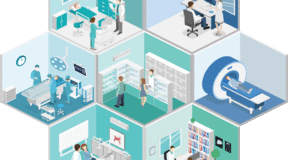 Most people who have spent time in a hospital might say that getting discharged is the light at the end of the tunnel. Returning home after a stay in a medical institution can be a significant transition, and proper steps must be taken to ensure the patient is truly on their way to recovery. But this can’t be done without following the proper steps of discharge planning. Families should be taking steps on the day of admission to discuss their discharge with their health care team; this could take place with either their doctor or nurse. With an idea of when the health care providers think they can go home, the family and patient can begin their planning for discharge right away.
Most people who have spent time in a hospital might say that getting discharged is the light at the end of the tunnel. Returning home after a stay in a medical institution can be a significant transition, and proper steps must be taken to ensure the patient is truly on their way to recovery. But this can’t be done without following the proper steps of discharge planning. Families should be taking steps on the day of admission to discuss their discharge with their health care team; this could take place with either their doctor or nurse. With an idea of when the health care providers think they can go home, the family and patient can begin their planning for discharge right away.
Evaluation
The doctors, nurses, and other medical staff that tend to you during your hospital stay will assess you based on your abilities and your improvement. Whether it was surgery, a slip and fall, or perhaps something more serious like a heart attack or stroke, each hospital stay requires different consideration and recovery. The medical personnel want to be sure not only that you are fit to go home, but that it will be an environment conducive to your recovery. Ask to be assessed by occupational therapy (OT) or physiotherapy (PT) if you have had a significant change in functional status since admission. Both OT and PT have a wealth of resources and referrals for home discharge.
Discussion
The discharge discussion will be one of the most significant talks you have with your medical team, particularly after major surgery or an extended hospital stay. This is your opportunity to ask for expert opinion, voice your concerns, or simply discuss your feelings. The medical team is likely to look at your condition and overall health before you entered the hospital, where you are physically after your hospital stay, and what your personal health and recovery goals are over the next few months. Coupled with their expert opinion, they can discuss a rehabilitation plan that will help get you to where you want to be and where they’d like to see you. Social workers are an excellent resource who can coordinate complicated home discharge, especially if there are multiple factors involved such as housing, financial, and family situation concerns.
Planning
Planning for your discharge is what will help the transition go smoothly. Use this opportunity to map out the coming days, weeks, and months of your recovery. Consider all factors, establish your support system, and put things in place so that you have what you need throughout your recovery. Ontario’s Local Health Integration Network Home and Community Care Services provide Care Coordinators that can help with this stage of assessing for home care services. These services can include Personal Support Worker (PSW), nursing, PT, OT, speech language pathology, dietitian, and medical equipment supply.
Determining next steps
Should you go home? Or perhaps be transferred to another medical facility? Considering where to go next can be a tough, but crucial decision. Whether you need a live-in caregiver or the help of a relative, ensure your next steps are attainable and beneficial to your recovery. Most hospitals have home care coordinators available right in the hospital, including the ER. It is important to note that anyone can ask to be referred to home care—it doesn’t need to be done by the health care team.
Referrals
If another medical facility is considered to be a better option than returning home, it’s crucial to find the facility that’s right for you. But don’t just take what’s suggested. Take your time to research the option best for you. If it is in fact another medical facility, arrange a phone consultation to decide whether it’s a viable option. Look up places online to see whether you’ll be comfortable there. Remember, this is where you’ll be recovering—you want to feel like you are home, even if you’re not. Home and community care coordinators are able to refer you to service providers like meals on wheels, cleaning services and companions.
Arranging follow-ups
Follow-up tests and appointments are key to making sure your discharge is going as planned. It’s important that your doctor sees you’re progressing, recovering, and readjusting to life at home well. It’s also another opportunity to go back to the discussion step where you can ask for that expert opinion, voice your concerns, or discuss your feelings. A lot changes once you’re discharged, and making sure that you’re adjusting well mentally is just as important as seeing progress in your physical recovery.
If you think you or your loved one is being discharged too soon, get multiple expert opinions. And most importantly, don’t leave until you or your loved one feels ready.






